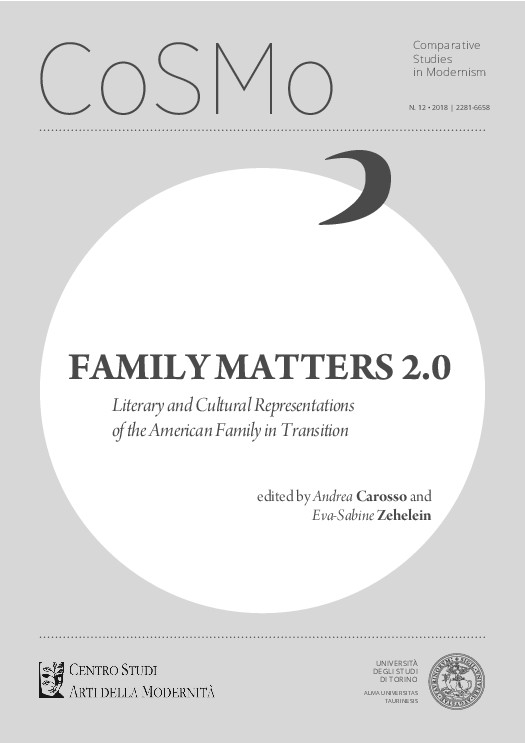Self-Explorations of Mothering and Family Life in Maggie Nelson’s “The Argonauts”, Sarah Manguso’s “Ongoingness”, and Heidi Julavits’s “The Folded Clock”
DOI:
https://doi.org/10.13135/2281-6658/2647Parole chiave:
autofiction, contemporary literature, motherhood, family, women's studiesAbstract
This essay explores mothering and family life in three twenty-first-century literary narratives: Maggie Nelson’s The Argonauts, Sarah Manguso's Ongoingness, and Heidi Julavits's The Folded Clock. These texts, through an autofictional account of their authors’ experiences with family making, call attention to the challenges contemporary American families face vis à vis traditional roles, mainstream assumptions, heteronormativity, and maternal roles. By voicing a critique to today’s “impossible standards” (O’Reilly 2010) for families and mothers, these narratives are challenging traditional images of “feminine selflessness” (Willett, Anderson, and Meyers 2016) and address cultural and ethical issues concerning current family models still unable to recognize queer family making and the idea that families are a dynamic process. The narratives’ combined interest in self- and family-making is reflected in their fluid generic status. In our post-postmodern literary period, these authors’ life writing is not only an attempt at postirony (see Konstantinou 2017). Rather, these narratives respond to the affective logic of contemporary autofiction (Gibbons 2017) portraying relational identities of the self. Nelson, Manguso and Julavits represent motherhood as a transformative, all-encompassing and bodily experience and choose to rely on “unfinished” genres (half-memoirs, half-essays, half-fiction) to reflect the idea of incompleteness around today’s motherhood and family matters.
Downloads
##submission.downloads##
Pubblicato
Fascicolo
Sezione
Licenza
Gli autori mantengono i diritti sulla loro opera e cedono alla rivista il diritto di prima pubblicazione dell'opera, contemporaneamente licenziata sotto una Licenza Creative Commons - Attribuzione che permette ad altri di condividere l'opera indicando la paternità intellettuale e la prima pubblicazione su questa rivista.







